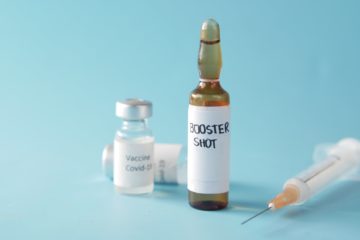Did you know….
- There are 39 trillion bacteria in our bodies, which outnumber the total number of cells in our body (37 trillion).
- Poop, almost one-third of it is made up of bacteria, both living and dead.
- In our bodies, human DNA accounts for less than 1% of all DNA, and more than 99% is due to the microbiome….
The average human microbiome contains an estimated 3 million different genes, compared to 20,000 genes in the human genome. That is significant because we already know that autoimmune diseases and allergies have been linked to genetic predispositions. This means that the microbiome genome is 100 times more likely to be the culprit than our own genome. The microbiome genome, unlike our genes, can be altered.
The last discovered organ – The microbiome
Over the last few years, scientists have discovered a slew of surprising links between the microbiome and other systems in the body (from metabolism to hormones to the brain and mental health). The strongest and most obvious link, however, is to the immune system.
Our immune cells coexist with the resident bacteria in the body, and they influence and rely on one another to form the biological immune ecosystem. They work like cogs in a wheel, warding off any threats to our health. When you transform one, the other side changes as well – everything is interconnected. As a result, changing the microbiome is at the heart of modulating/healing the immune system.
What keeps the microbiome stable?
As you grow, your microbiome evolves gradually, assisting your body in adapting to its surroundings (a simple analogy can be made with how strength training can improve your muscle tone or the tanning of your skin when you live in tropical countries).
However, you want these changes to be gradual and beneficial to your health. That is how it is in a healthy individual.
It can sometimes go off the rails, causing damage to many parts of the body, including the immune system. As a result, there are allergies, autoimmune diseases, and even an increased risk of cancer.
The interaction between the microbiome and immune cells is a two-way street.
There are numerous factors that govern the microbiome interactions with the immune system:
- Digestive system epithelium
- Intestine immune system
- Motility
- Your environment and your exposure to germs
- Digestion, stomach acid, bile, saliva, and chewing
- Food components and eating habits
- Inertia in the bacterial ecosystem
Microbiota inertia
Have you ever wondered why the same food and water causes enteric infection in some people but not in others? The reason behind this is that periodic risk factors do not destabilize the healthy microbiome; it, like any stable ecosystem, has inertia. When a microbiome community is established, newcomers cannot settle easily; they must arrive in large numbers and for an extended period to occupy an ecosystem niche.
To better illustrate how inertia exists in the microbiome, let’s take an example of a xenophobic city ( a city whose residents are hostile to newcomers). Changing the population takes a large number of immigrants and a long time. Locals in the city murder foreigners. So, only a large number of newcomers (massive intrusion) or an average over a prolonged period can change the population (somebody survives, minor changes add up and gradually shift the population). I hope this gory, yet accurate example provides an accurate explanation of the ‘conquest or immigration’ concept.
Similarly, the microbiome ecosystem is either broken by massive and/or long-term intrusions of bad germs and/or issues with some of the ecosystem factors (most frequently, food or digestive function).
A healthy, diverse microbiome is far more stable than an unhealthy, low-diversity one. A similar scenario is commonly seen in nature in forest ecosystems which are more stable and healthier than monoculture farmland. That is why, with a healthy microbiome, even occasional junk food will not disrupt it.
Such inertia is beneficial because, when you have a healthy microbiome, the occasional break in diet or eating some bad bacteria (infection in food) is quickly neutralized and cannot easily break you. It’s like immunity. Even before your immune cells encounter aliens, your bacteria take care of many problems. Eating something incorrectly may result in one day of diarrhea, after which you will be fine.
Historical evidence says that hunter-gatherers, with extremely versatile and strong microbiomes, could drink water from unclean puddles and eat spoiled meat or vegetables without fear of contamination.
The inverse of such inertia is when a microbiome is unhealthy, changing it to a healthy one is also difficult. This time, pathogenic bacteria (and fungi) occupy ecosystem niches and do not welcome competitors. That is why probiotic supplements do not easily colonize us. You need more over a longer time. Furthermore, bacteria in long-stored probiotic supplements are not in exceptionally good condition. As a result, probiotic pills have a limited effect. A long time is required. Eating fermented products introduces bacteria in “large volume” and healthy active bacteria, increasing their chances of survival. And if it is part of your food culture, it will happen repeatedly.


